Previous parts:
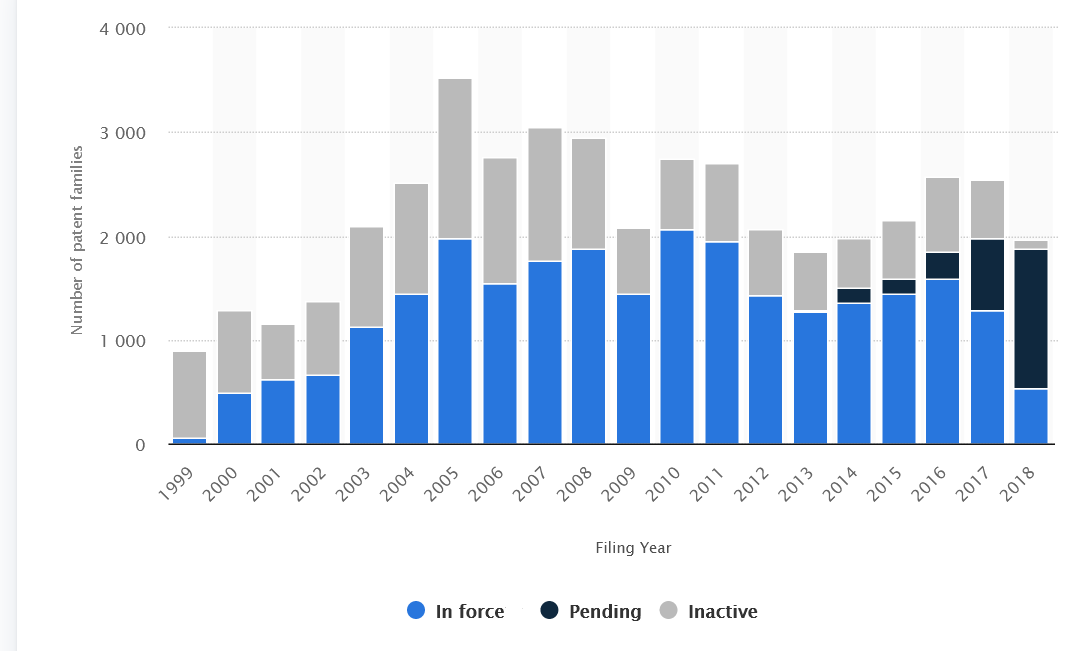
Microsoft patent families worldwide by filing year from 1999 to 2018
Summary: "Although the company's own proprietary Windows Phone operating system was a complete commercial flop, it was reported in 2013 that Microsoft was in line to make as much as USD 3.4 billion from patent licenses relating to Android phones."
In this part we will focus our attention on one specific aspect of Microsoft's activities which is a cause for concern in relation to its newly-acquired role in driving the EPO's "digital transformation process".
To cut directly to the chase, what we are talking about here is Microsoft's prominent position as a global IP player, in particular in the area of patents.
"Back in those days Bill Gates liked to tell his staff and anybody else who cared to listen that software patents are typically used as anti-competitive devices by large corporations like IBM to reinforce their dominant position in the face of the threat posed by smaller companies."It wasn't always like that.
In the early 1990s, when the company's annual revenues had just crossed the billion-dollar threshold, Microsoft held around five patents.
Back in those days Bill Gates liked to tell his staff and anybody else who cared to listen that software patents are typically used as anti-competitive devices by large corporations like IBM to reinforce their dominant position in the face of the threat posed by smaller companies.
Before long Microsoft's revenues and profits had started to rise dramatically. By the midââ¬â1990s its annual revenues were USD 8.7 billion, and profits had risen to USD 2.2 billion.
By then, Microsoft owned about 100 patents, still a tiny number compared to IBM's tens of thousands.
The patents which Microsoft held at that time were not really the foundation of its commercial success. The company only started to build up a patent portfolio in a gradual manner after it had come to regard patenting as a business "necessity" and had acquired the financial resources to be able to afford it.
At some point in time that is difficult to pinpoint from the outside, Microsoft radically changed its policy on patents, upgrading them from a mere "necessity" to a major "strategic opportunity".
According to Florian Müller, author of "No Lobbyists As Such - The War over Software Patents in the European Union", this change in policy was primarily due to the perceived threat of Free and open-source software, especially the GNU/Linux operating system.
To see how things stand with Microsoft these days it is helpful to turn to the statistics published by the World Intellectual Property Organisation (WIPO) in Geneva for the WIPO-administered Patent Cooperation Treaty (PCT) procedure, a unified procedure for filing patent applications and which offers the possibility to seek the grant of a patent in each of the 153 PCT contracting states.

WIPO figures for US-based PCT applicants
The figures published by WIPO for the US put Microsoft in third place in the list of the top 10 US applicants using the PCT procedure. In recent years, the software behemoth from Redmond has been filing well over a thousand PCT applications annually: 1,476 in 2018, 1,370 in 2019 and 1,529 in 2020.
It's no big surprise to find that Microsoft is also a leading player in the patents game on its home turf in the US.
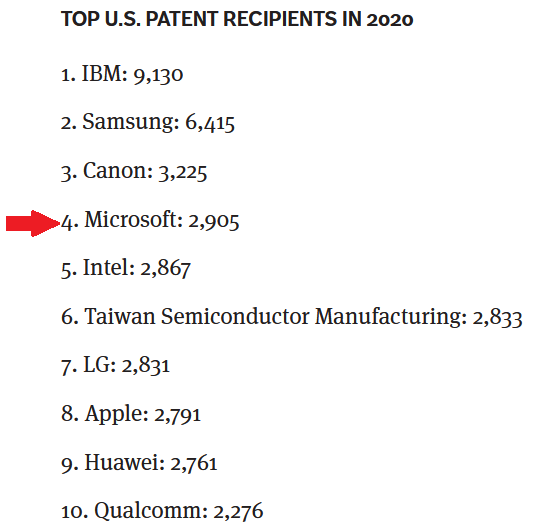
Microsoft ranked fourth in the list of top 10 US patent recipients in 2020
For example, at the start of this year it was reported that Microsoft was ranked fourth in the list of top 10 US patent recipients in 2020 with
2,905 granted patents. This was slightly less than the figure for 2019 when Microsoft received
3,083 granted patents from the USPTO.
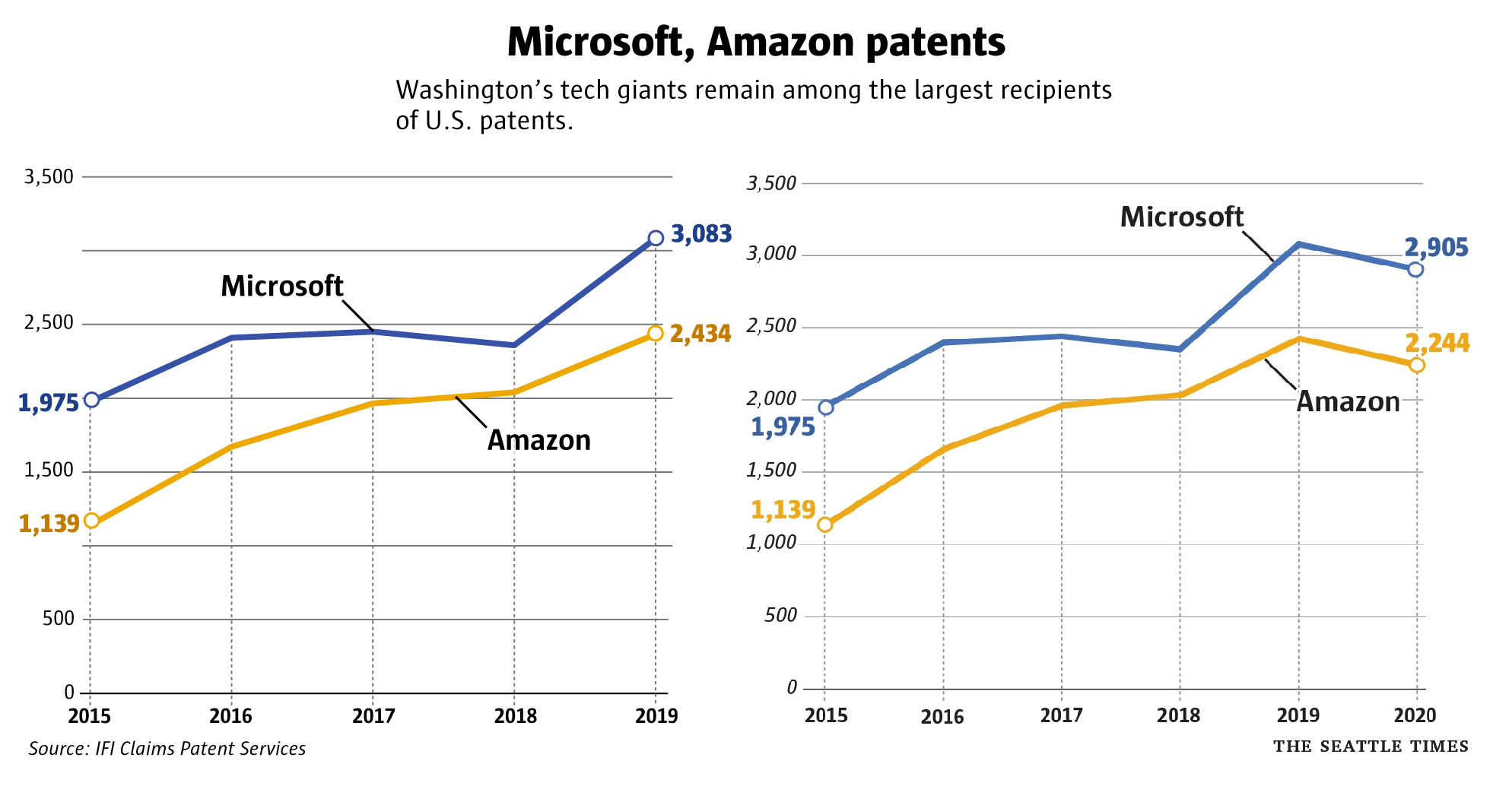
US Patents granted to Microsoft: 3,083 in 2019 and 2,905 in 2020
Over on the other side of the Atlantic, official figures from the EPO confirm that Microsoft is also quite active as a patent applicant in Europe.
For example, figures released in March 2020 reveal that Microsoft tied with Apple for first place in the list of the EPO's top 10 applicants in the field of computer technology.
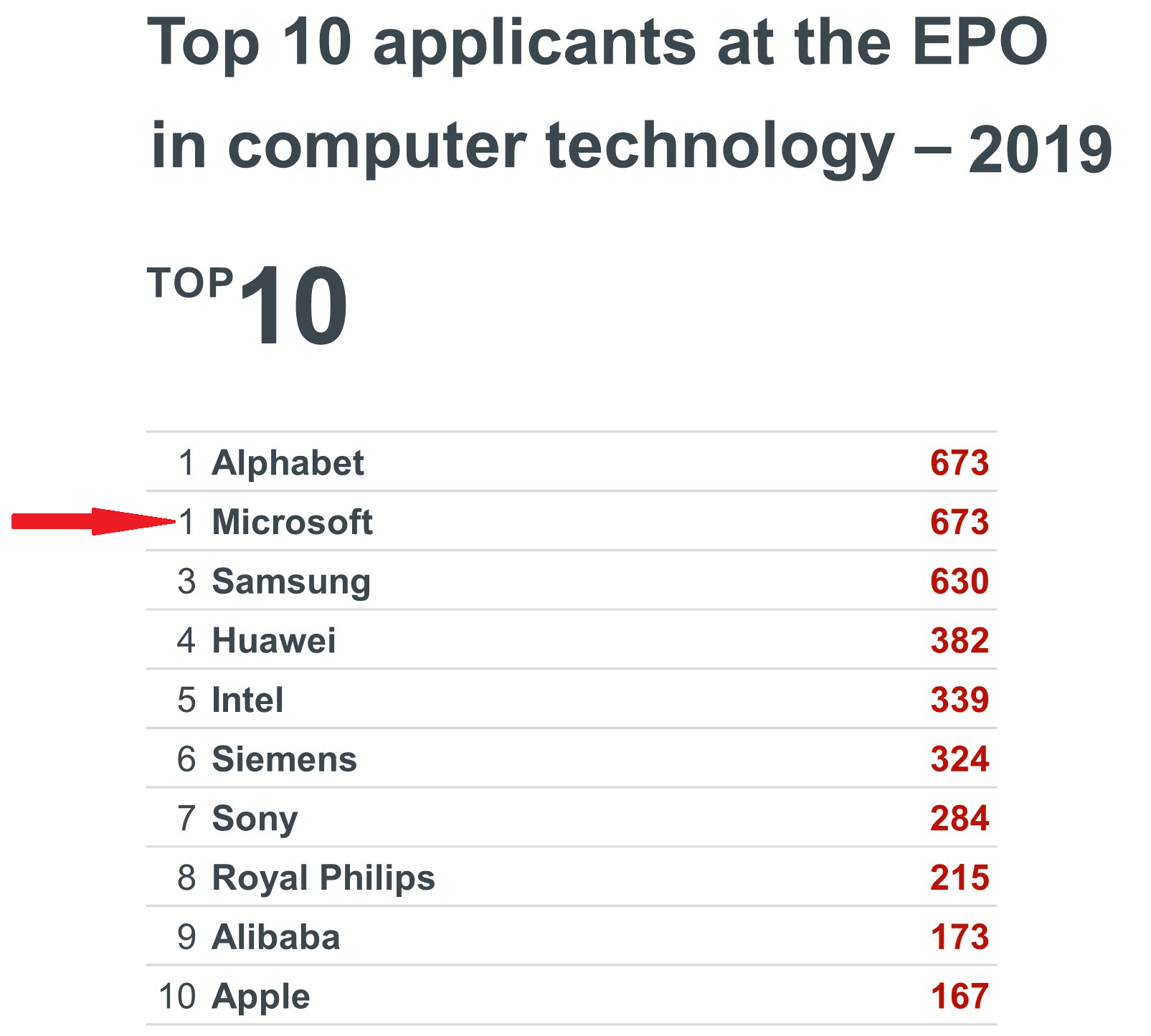
In the list of the EPO's 25 largest applicants (by number of patent filings) across all technical fields Microsoft came in at number 14.
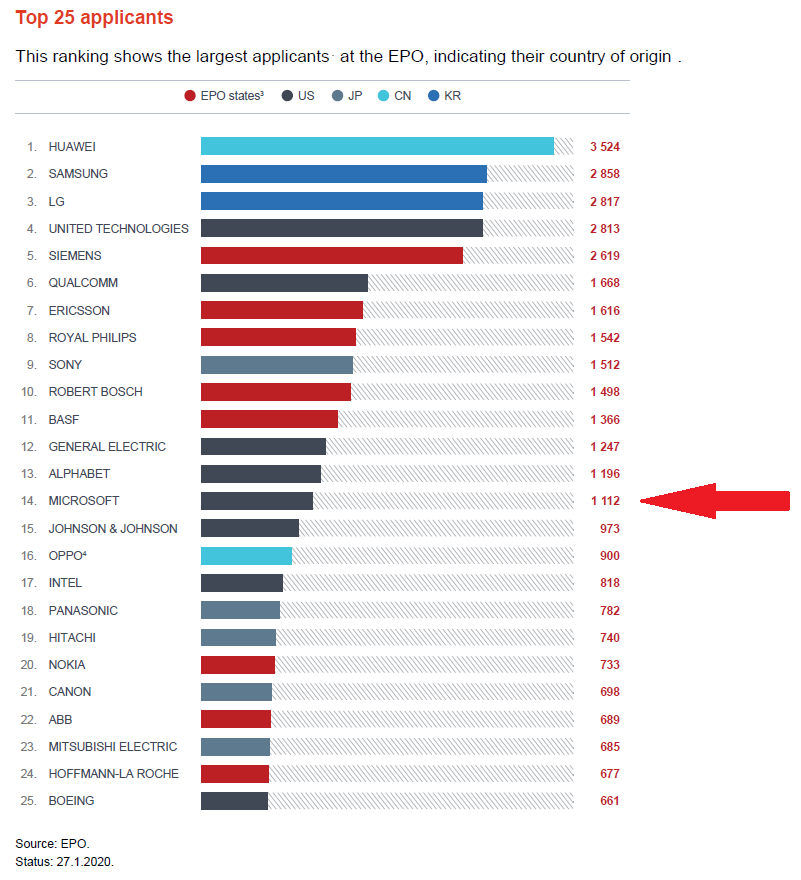
It hardly needs to be pointed out that a multinational corporation like Microsoft is not engaged in the patents game just for fun.
There is serious "moolah" involved as can be seen from Microsoft's lucrative Android patent licensing agreements, including its
"billion dollar a year" deal with Samsung.
Although the company's own proprietary Windows Phone operating system was a complete commercial flop, it was reported in 2013 that Microsoft was in line to make as much as
USD 3.4 billion from patent licenses relating to Android phones.
In addition to Samsung, Microsoft also managed to get Foxconn, the world's largest contract electronics OEM, Nikon, ZTE , and numerous other Android OEMs to pony up by persuading them that it would be preferable to pay patent royalty
"Danegeld" to the software Vikings of Redmond than to risk being overwhelmed by potentially ruinous litigation.
It's no coincidence that the term
"patent troll" has cropped up from time to time in reports about Microsoft's aggressive approach to "monetizing" its Android patent portfolio.
In 2011 a technology analyst at Citigroup
estimated that Microsoft was getting USD 5 per Android handset sold by phone maker HTC under a patent agreement, and that it was looking for up to USD 12.50 per phone from other handset makers in deals still under negotiation.
Microsoft never confirmed those estimates, but neither did it publicly question them.
However, not everybody was convinced that the licencees and their customers were getting value for money from these deals.
In October 2014, Florian Müller
expressed scepticism about the quality of Microsoft's Android patent portfolio suggesting that only a relatively small number of the patents which it held were likely to be sufficiently robust to stand the test of litigation.
Shortly afterwards a dispute between Microsoft and Samsung concerning the "billion dollar a year" Android deal became public when it was revealed that Microsoft was suing Samsung for
USD 6.9 million in unpaid interest.
Samsung
initiated arbitration proceedings and in
February 2015 it was reported that both parties had reached an amicable settlement.
The facts outlined above leave no room for doubt that the patent royalties game is a lucrative business for multinational corporations like Microsoft.
And it is also quite clear that the software behemoth from Redmond is a serious player in this arena both on its home turf in the US and on a global level.
This in turn raises the question as to whether it is appropriate for a company with a profile like this to be allocated a key role in providing IT services to a major regional patent examination and granting authority such as the EPO.
We will consider this question in more detail in the next and penultimate part of the series.
⬆




